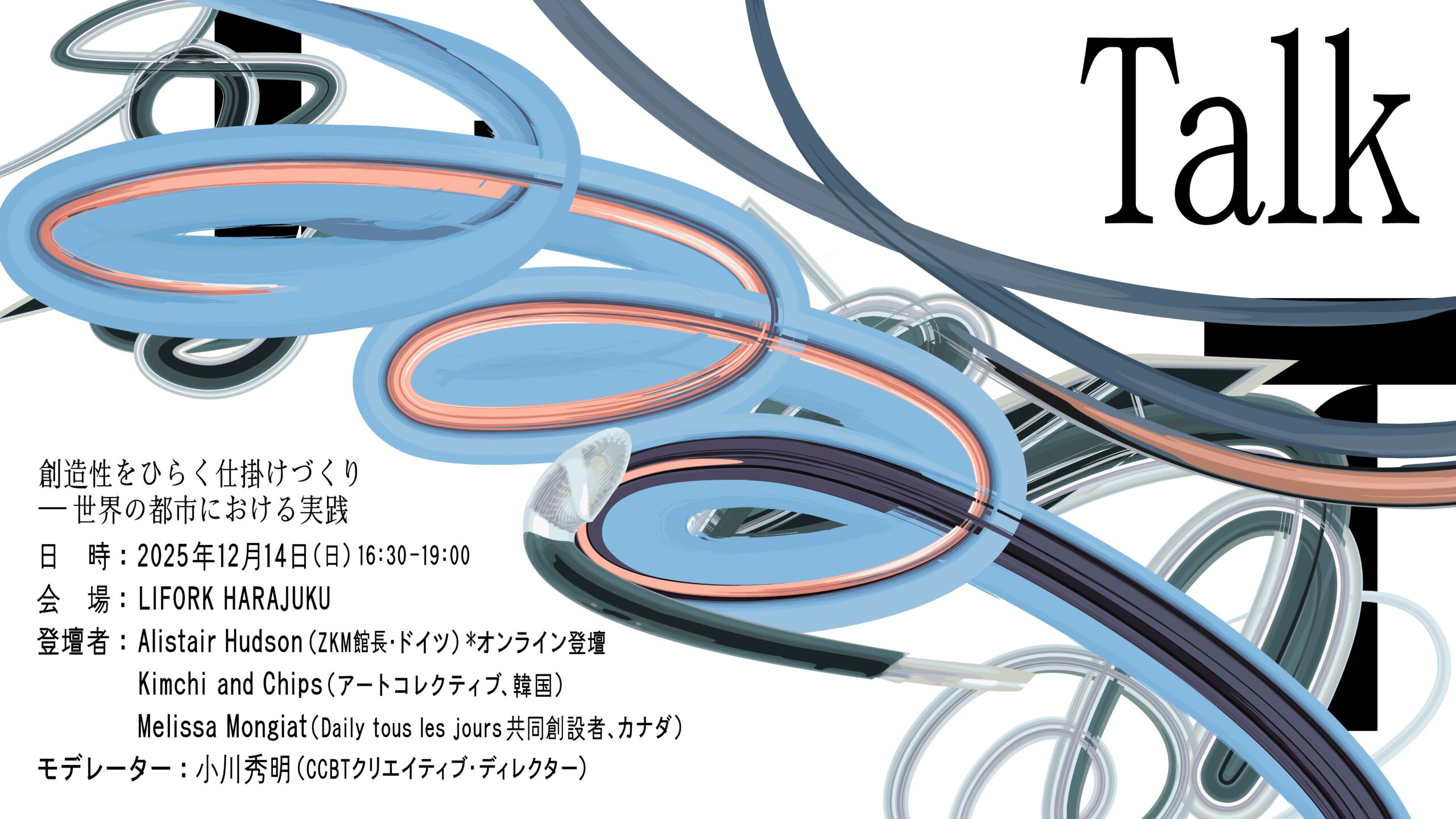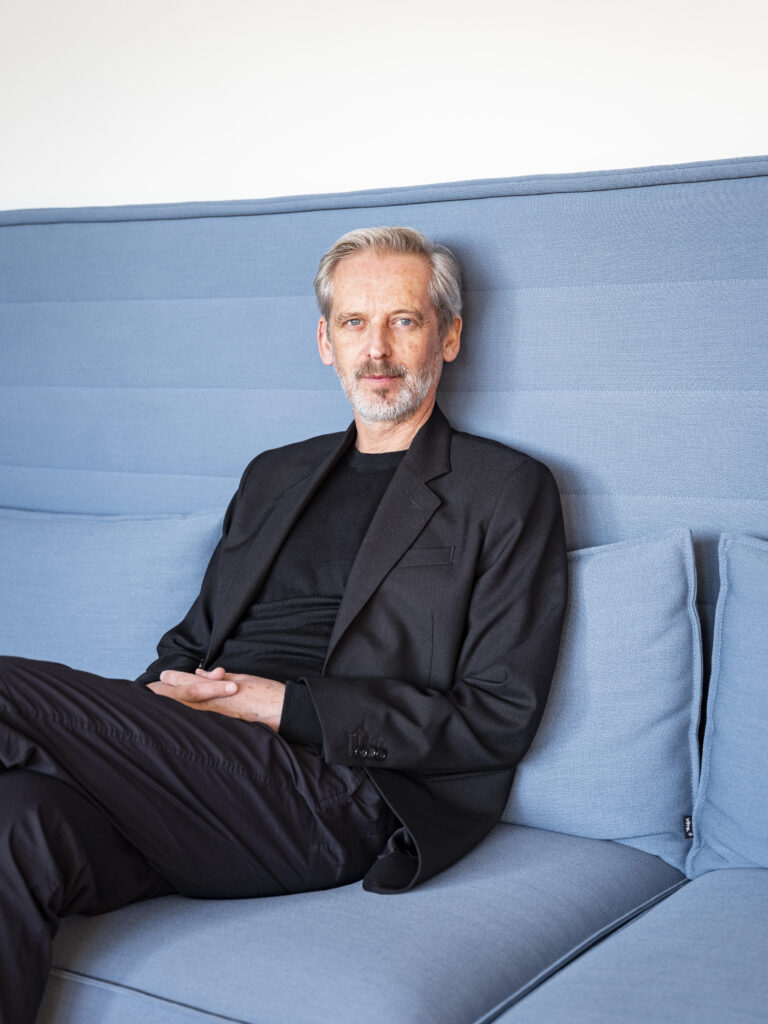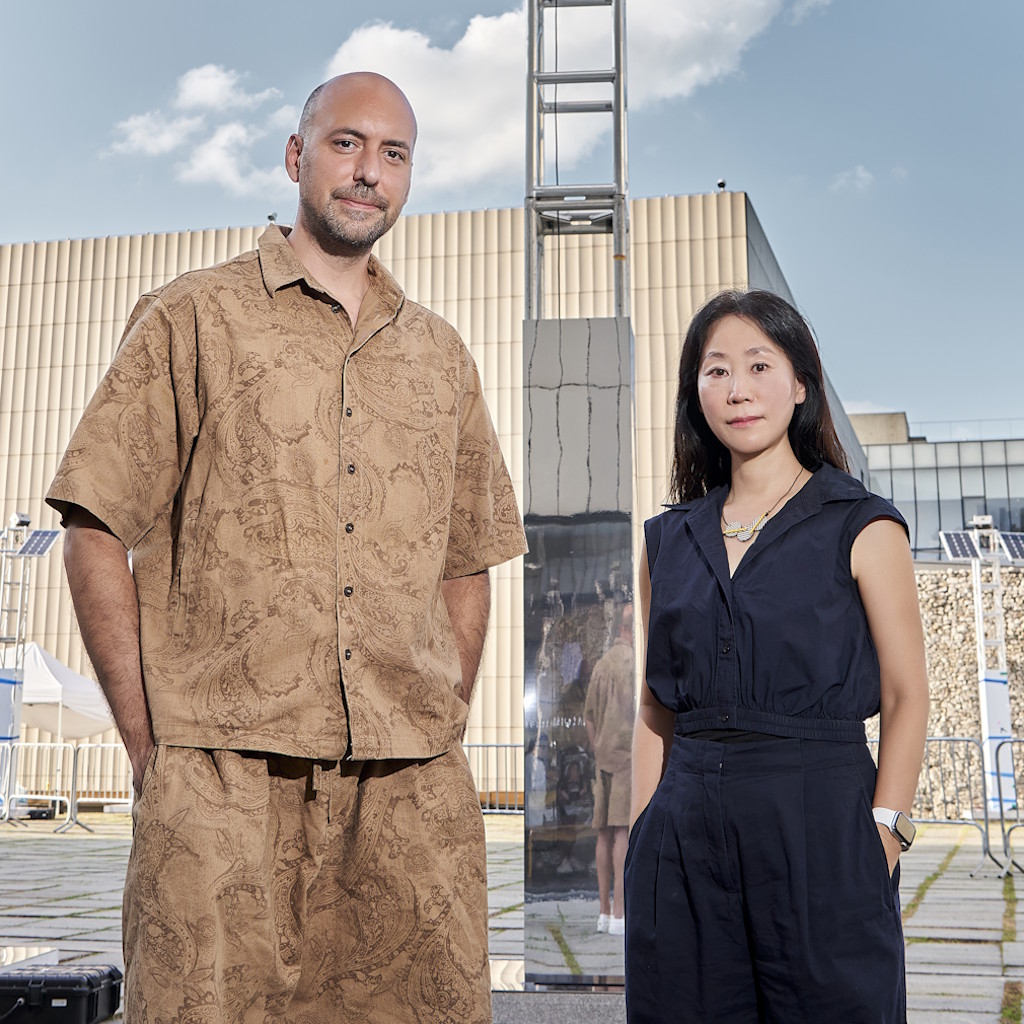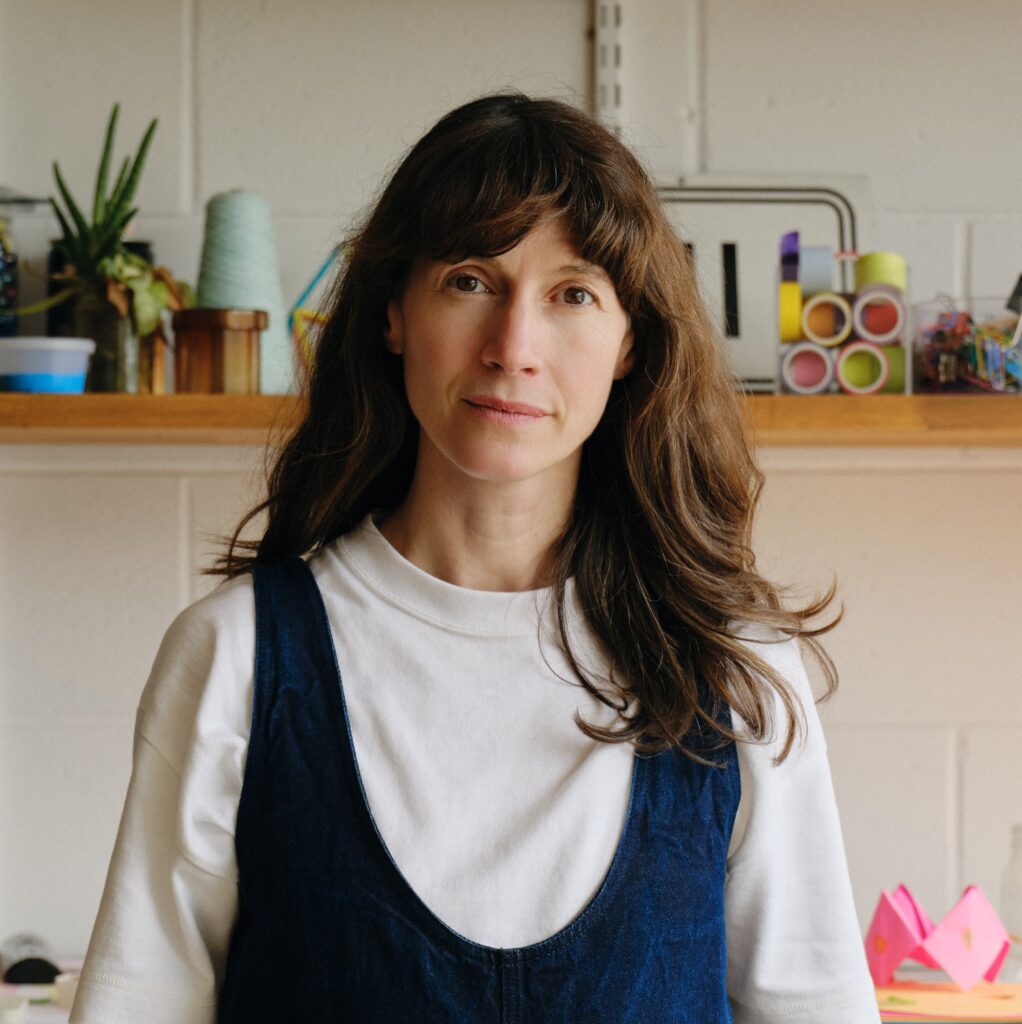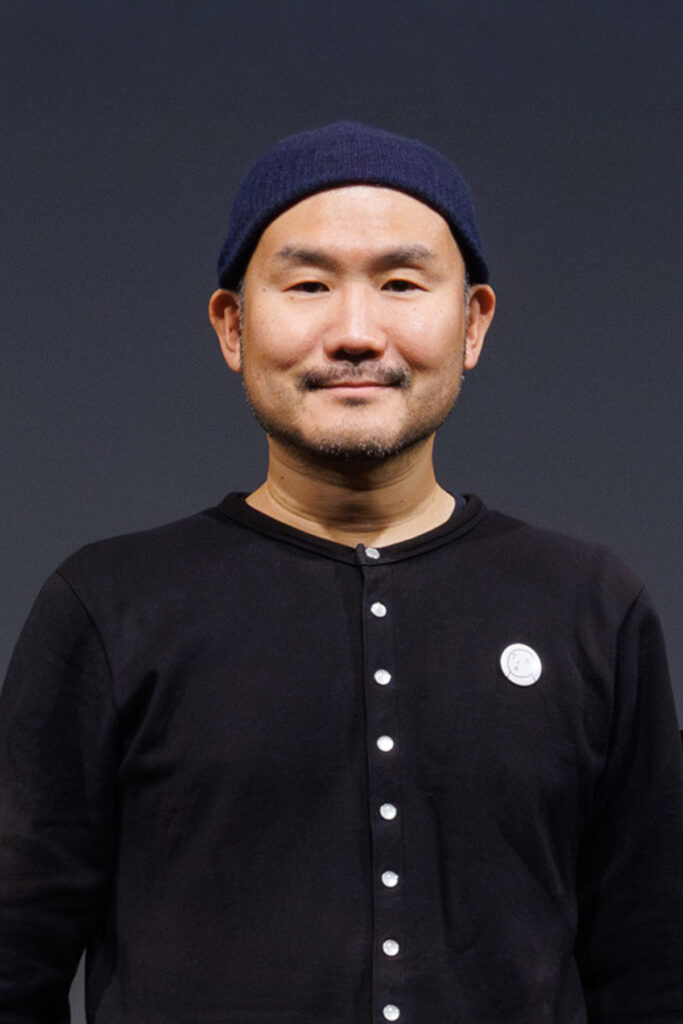CCBT welcomes panelists from Germany, South Korea, and Canada working to make places better by engaging with cities, communities, and residents through art and technology. Cultural practitioners, artists, and urban designers introduce practices utilizing different methods and approaches to create frameworks and systems from various perspectives. Join us for this insightful and valuable talk.
Marking its relocation to Harajuku, CCBT hosts an opening talk to foster a space where artists, designers, researchers, engineers, cultural workers, and citizens from diverse backgrounds all come together, and to consider ways to gain footholds toward co-creation with reference to global and urban trends.
This opening talk features panelists with different backgrounds and approaches from cities around the world. They introduce practices that use art and technology to engage with cities, communities, and residents, and work to create better cities. Through these case studies, the speakers explore the actions necessary to inspire the imagination we all have, and achieve a society in which our creativity is unleashed. They also consider the potential to establish these endeavors as sustainable systems.
The speakers include: Alistair Hudson, director of Germany’s ZKM, which advocates for the “useful museum”; Kimchi and Chips, a Korean art collective that sees art, science, and philosophy on the same level, and explores their intersection through large-scale installations; and Melissa Mongiat from Daily tous les jours, a Canadian design studio that treats public space as a canvas for reinventing how we coexist today. CCBT Creative Director Hideaki Ogawa serves as the moderator sharing examples of global practices. Join us for this exciting talk.
Timeline(Tentative)
16:30〜16:40 Introduction
16:40〜18:00 [Session1] Presentation
Panelists:
・Alistair Hudson (Scientific-Artistic Chairman / ZKM) *Online
・Kimchi and Chips (art collective)
・Melissa Mongiat (co-founder of Daily tous les jours)
18:00〜18:10 Break
18:10〜19:00 [Session2] Discussion, Q&A
moderator: Ogawa Hideaki (Creative Director of CCBT)
Access
LIFORK HARAJUKU (WITH HARAJUKU 3F, 1-14-4 Jingumae, Shibuya-ku, Tokyo)
1 minutes’ walk from Harajuku Station (JR Yamanote Line)
1 minutes’ walk from Meiji-jingumae <Harajuku> Station (Tokyo Metro Chiyoda and Fukutoshin lines)
ZKM (Center for Art and Media Karlsruhe)
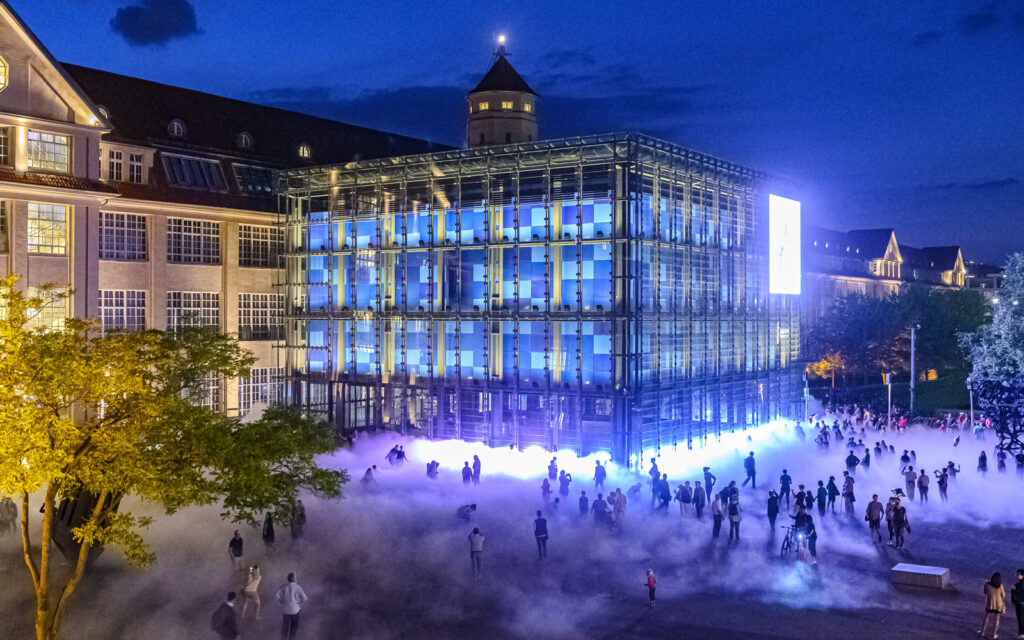
Founded in 1989, the ZKM (Center for Art and Media Karlsruhe) stands worldwide for an open concept of art in the digital age. At the ZKM, scientific collection and archive research is intertwined with artistic research on the electronic arts. Through these interdisciplinary connections, the ZKM presents and produces the evolution of art and media of the 20th and 21st centuries.Whether exhibitions, symposia, publications, concert programs or digital formats, the ZKM is the platform for the discourse of art and technology with society, science, business, and politics in order to examine and better understand the effects of our media and digital world on us humans.
Kimchi and Chips
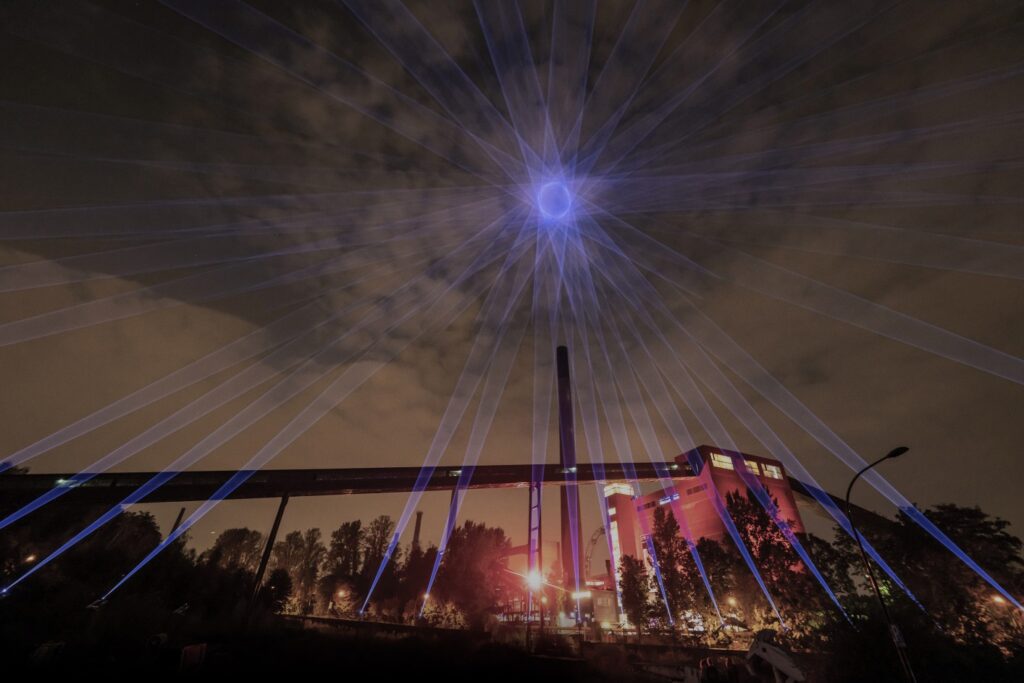
Photo: Jochen Tack
Kimchi and Chips is an artist duo exploring the intersections of art, science, and philosophy through large-scale installations. Their practice approaches these disciplines as overlapping alternative maps of the same terrain, combining concepts from relativistic physics and Buddhist philosophy. They design every technical element themselves—from code and optics to structures and AI—and have released more than 200 open-source code libraries. Through their work, Kimchi and Chips investigate how art and technology shape images, perception, and interaction, engaging audiences and communities while expanding the possibilities of media art within social and urban environments.
Daily tous les jours
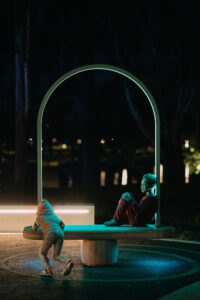
Photo : Leah Tribett
Melissa Mongiat and Mouna Androas founded Daily tous les jours in Tiohtià:ke/Mooniyang/Montréal in 2010. The award-winning art and design studio works in an emergent field of practice combining interactive art, storytelling, performance, and urban design to reinvent living together for the 21st century. With permanent and temporary installations created in more than 60 cities around the world, their work encourages citizens to play an active role in the transformation of their cities, with the public spaces we share everyday as their canvas. The studio has garnered numerous recognitions, including a UNESCO Creative Cities Shenzhen Design Award (Grand
Prize), Winner of the Knight Cities Challenge, and Fast Company’s Innovation by Design Award.

